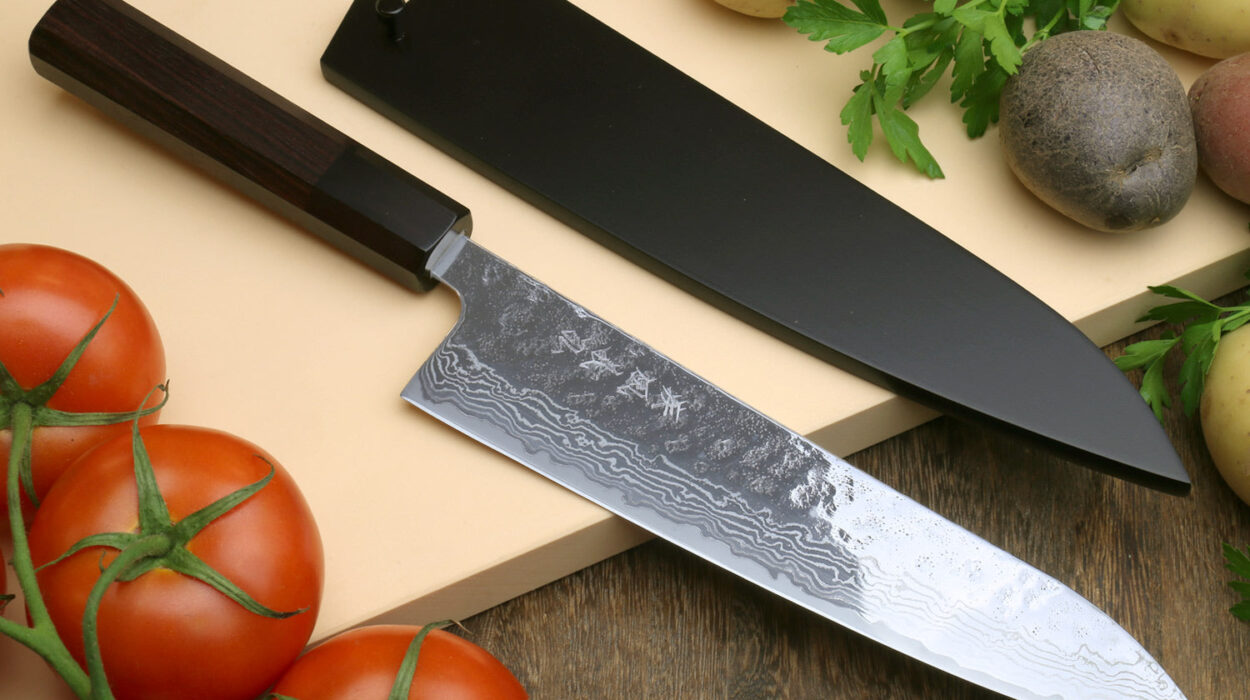The allure of a beautifully crafted Damascus knife is undeniable, especially for kitchen professionals who appreciate precision and elegance in their culinary tools. If you’re in the market for a new knife, this Damascus knife buying guide is your gateway to making a well-informed choice. Let’s delve into the intricacies that make a Damascus knife stand out and discover how you can pick the best one for your kitchen needs.

Understanding the Damascus Steel
Before diving into the specifics of buying, its essential to understand what Damascus steel actually is. Known for its distinctive wavy patterns, Damascus steel is revered not only for its aesthetic appeal but also for its durability and sharpness. Historically, it was crafted through a technique that involved folding and forging different types of steel together. This creates a robust structure, making it ideal for blades.
Characteristics of Damascus Knives
Consider the kind of tasks you’ll be using your knife for. A good Damascus knife should exhibit the following characteristics:
- Sharpness: Maintains a sharp edge over extended use.
- Durability: Withstands wear and tear, even with regular heavy use.
- Aesthetic: Beautiful, unique patterns that add elegance to your kitchen.
The unique patterns on a Damascus knife come not only from its historical forging technique but also from modern advancements in metal science.
Types of Damascus Knives
There are various types of Damascus knives tailored for different culinary functions. Here are some popular ones:
Chefs Knife
The versatile chefs knife is essential in any kitchen. Its broad blade makes it suitable for slicing, chopping, and dicing vegetables, meats, and fish. This knife is a staple for any serious chef or home cook.
Paring Knife
The paring knifes short blade makes it perfect for intricate tasks like peeling or coring fruits and vegetables. Its lightweight design makes it easy to handle.
Utility Knife
A utility knife, falling between a chef’s knife and a paring knife, is ideal for cutting sandwiches, slicing small meats, or even fruits and vegetables that are too large for a paring knife.
Identifying Authentic Damascus Knives
In the vast market of blades, distinguishing between true Damascus and counterfeit can be challenging. Here are tips to ensure the authenticity of your knife:
Pattern Consistency
A genuine Damascus knife will have a pattern that goes throughout the blade. Counterfeit ones may have surface etchings that fade over time.
Price Indication
Authentic Damascus knives come at a price due to their complex manufacturing process. Always be wary of prices that seem too good to be true.
Care and Maintenance of Damascus Knives
For your Damascus knife to last, proper care and maintenance are crucial. Learn how to care for your knife to keep it sharp and gleaming.
Regular Sharpening
Use a sharpening stone or professional service to maintain a sharp edge.
Hand Washing
Avoid dishwashers. Instead, hand wash with mild detergent and dry immediately.
Common Mistakes When Buying a Damascus Knife
- Overlooking the pattern irregularities; they may signify a fake.
- Ignoring reviews or not buying from reputable sellers.
- Choosing the wrong type of knife for its intended kitchen use.
Conclusion
Acquiring a Damascus knife is not just about buying a kitchen tool; it’s about investing in a piece of functional art. By understanding the key elements like authenticity, type, and maintenance, your buying journey will be more fulfilling, equipping you with a tool that enhances your culinary experience. For further exploration and reading, check out the craftsmanship of Damascus knives from regions known for their expertise.

Frequently Asked Questions
What makes Damascus knives special?
Damascus knives are renowned for their unique patterns, exceptional durability, and ability to maintain a sharp edge. The combination of these features makes them a standout choice for both professional chefs and cooking enthusiasts.
How do I maintain the sharpness of my Damascus knife?
Regularly honing your knife with a sharpening stone and avoiding dishwasher usage will help maintain its edge. Proper cleaning and storage keep the blade in top condition.
Where can I learn more about Damascus knife history?
To dive deeper into the origins and evolution of Damascus knives, consider visiting some resources on the history of Damascus knives.
This article contains affiliate links. We may earn a commission at no extra cost to you.


